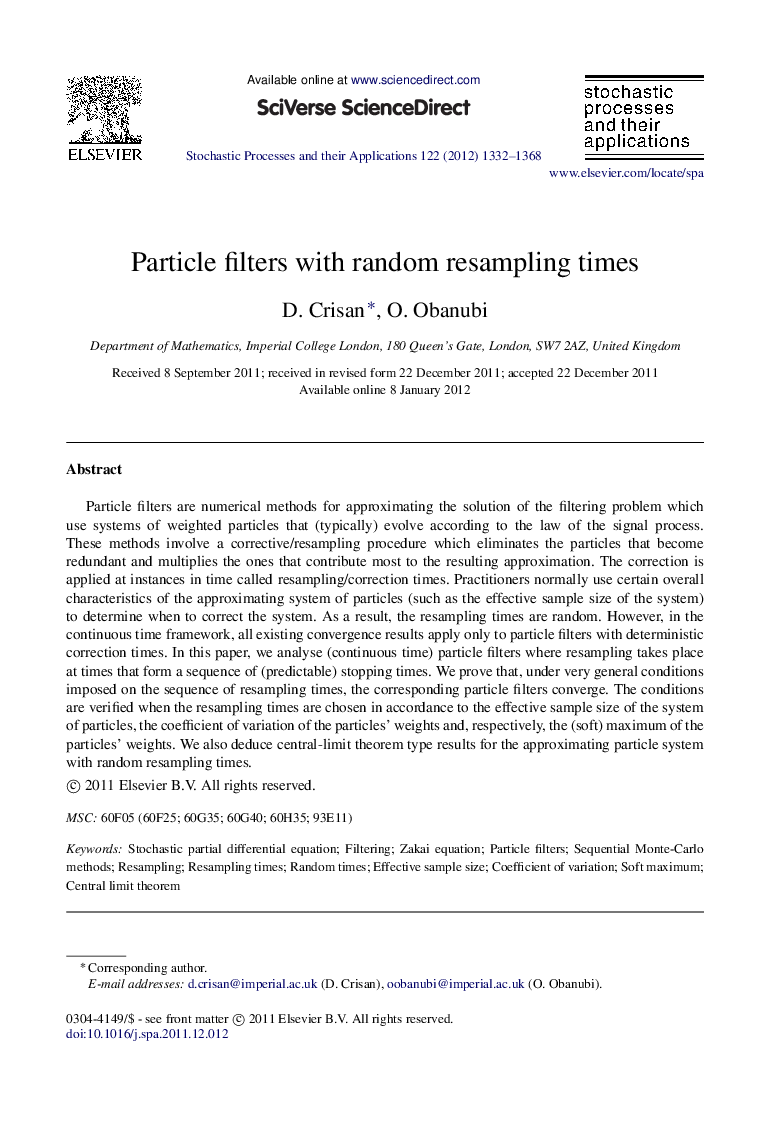| Article ID | Journal | Published Year | Pages | File Type |
|---|---|---|---|---|
| 10527270 | Stochastic Processes and their Applications | 2012 | 37 Pages |
Abstract
Particle filters are numerical methods for approximating the solution of the filtering problem which use systems of weighted particles that (typically) evolve according to the law of the signal process. These methods involve a corrective/resampling procedure which eliminates the particles that become redundant and multiplies the ones that contribute most to the resulting approximation. The correction is applied at instances in time called resampling/correction times. Practitioners normally use certain overall characteristics of the approximating system of particles (such as the effective sample size of the system) to determine when to correct the system. As a result, the resampling times are random. However, in the continuous time framework, all existing convergence results apply only to particle filters with deterministic correction times. In this paper, we analyse (continuous time) particle filters where resampling takes place at times that form a sequence of (predictable) stopping times. We prove that, under very general conditions imposed on the sequence of resampling times, the corresponding particle filters converge. The conditions are verified when the resampling times are chosen in accordance to the effective sample size of the system of particles, the coefficient of variation of the particles' weights and, respectively, the (soft) maximum of the particles' weights. We also deduce central-limit theorem type results for the approximating particle system with random resampling times.
Keywords
Related Topics
Physical Sciences and Engineering
Mathematics
Mathematics (General)
Authors
D. Crisan, O. Obanubi,
